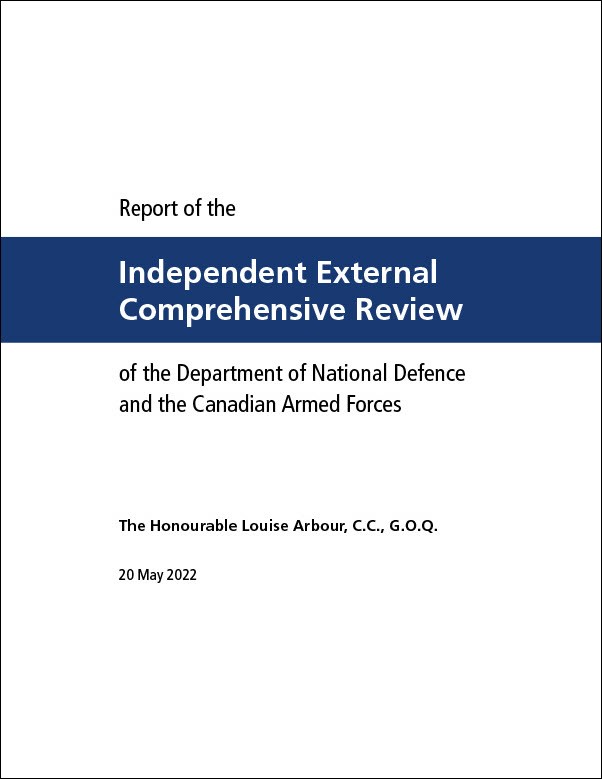On August 22nd, the Minister of National Defense announced changes to the military grievance and harassment process which implement Recommendations 7 and 9 of the Independent External Comprehensive Review (IECR), led by former Supreme Court of Canada Justice, Louise Arbour.
Effective immediately, any Canadian Armed Forces members who have experienced sexual harassment, sexual misconduct or any other form of discrimination based on sex/gender while performing their duties have a new path to justice available to them. They can choose to bring their complaint directly to the Canadian Human Rights Commission (CHRC). The Canadian Human Rights Commission is Canada’s human rights watchdog and operates independently from the Government of Canada.
With this change, a CAF member who intends to file a complaint of sexual harassment or discrimination on the basis of sex will have two options for lodging a complaint: (1) they can file a complaint through the existing CAF grievance and harassment processes, or (2) they can file directly with the CHRC. Members who choose to go directly to the CHRC will no longer be required to exhaust internal grievance and harassment processes first. The implementation of these recommendations applies to both new and existing complaints.
In particular, as recommended by Arbour, the Canadian Armed Forces will no longer file objections based on section 41(1)(a) of the Canadian Human Rights Act in response to member complaints of sexual harassment or discrimination on the basis of sex being filed directly with the Canadian Human Rights Commission (CHRC). The Canadian Armed Forces recognizes the CHRC’s decades of experience in this area and is committed to learning from the CHRC’s expertise.
This announcement follows an extensive period of consultation and planning between National Defense and the Canadian Armed Forces, and the Canadian Human Rights Commission, to ensure a robust and smooth complaint process.
Modernizing complaint processes is a key component of our culture change efforts. We are working hard to make it easier for all members of our institution to access a range of services and find the best recourse options available to them. An effective complaint system ensures that affected persons are provided with support and access to recourse options that best address their needs. It also helps hold people accountable for their actions, within a process that is transparent and fair.

